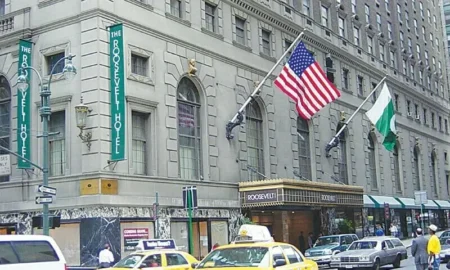GENEVA: The International Air Transport Association (IATA) has urged governments to make data-driven decisions when reopening borders to international travel, giving freedom to travel to those tested and vaccinated.

Strategies without quarantine measures can enable international travel to restart with a low risk of introduction of Covid-19 to the travel destination, IATA said in a statement.
Willie Walsh, IATA’s Director General, said: “Covid-19 is something that we need to learn to manage, like we do other risks to health. We accept many things in society that we know come with risks—from consuming alcoholic beverages to how we drive. We don’t ban these activities. We have some common-sense rules and the information needed to make sensible decisions about how to manage these risks.
“The post-pandemic future means doing the same for Covid-19 so we can all get on with our lives. There is no completely risk-free protocol. Vaccination will play a big role. And the data we have tells us that screening and testing protocols can make travel safely accessible for all.”
“Data can and should drive policies on restarting global travel that manage Covid-19 risks to protect populations, revive livelihoods and boost economies. We call on the G7 governments meeting later this month to agree on the use of data to safely plan and coordinate the return of the freedom to travel which is so important to people, livelihoods and businesses,” said Walsh.
Evidence continues to show that vaccination protects travellers from serious illness and death, and carries a low risk of introducing the virus into destination countries, according to IATA.
A challenge is the potential of barriers to travel for unvaccinated people which would create an unacceptable exclusion. Data from the UK NHS regarding international travellers arriving in the UK (with no reference to vaccination status) shows that the vast majority of travellers pose no risk for the introduction of Covid-19 cases after arrival.
“Many governments continue to require universal quarantine either hotel-managed or self-managed. This impedes the freedom of movement, discourages international travel and destroys employment in the travel and tourism sector. Data from the UK tells us that we can and must do better. Almost 98% of those detained because of universal quarantine measures tested negative for the virus,” said Walsh.




